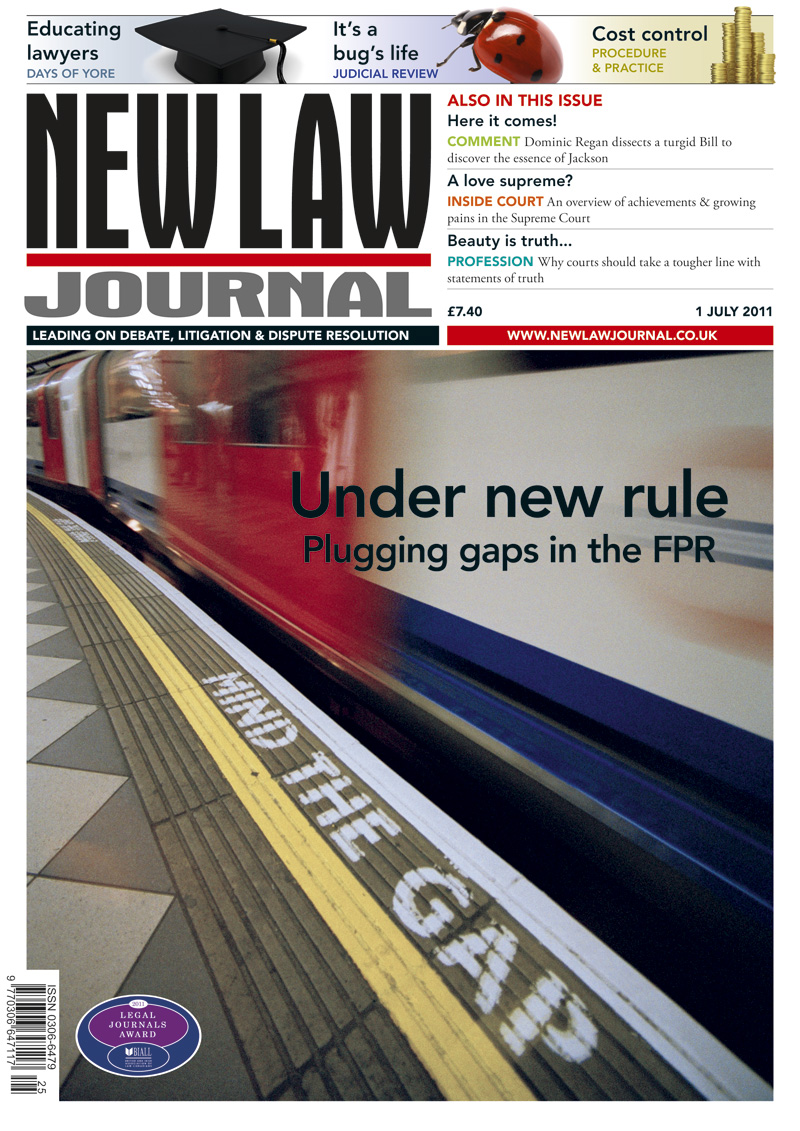
Dominic Regan dissects a turgid Bill to discover the essence of Jackson
Do not fear the Jackson juggernaut, say Rani Mina & Tom Duncan
Emma Williamson considers the impact of Wardle on the award of career-long loss compensation
David Burrows investigates the “gap procedures” under the new FPR
Robert Dickason examines exaggerated injuries & insurer misrepresentation claims
Lesley Hughes & Rachael Reynolds report on restrictive covenants & the power of the lands tribunal
How does a state protect the right to life, asks Sarah Lowe
Time waits for no man…but might make an exception for bugs, observe John Doherty & Stephen Hackett
Michael Tringham reviews some unusual probate tussles
Jane Mayfield reports on the proposed reforms to financial regulation
MOVERS & SHAKERS

Clarke Willmott—Declan Goodwin & Elinor Owen
Corporate and commercial teams in Cardiff boosted by dual partner hire

Hill Dickinson—Joz Coetzer & Marc Naidoo
London hires to lead UK launch of international finance team

Switalskis—11 promotions
Firm marks start of year with firmwide promotions round







